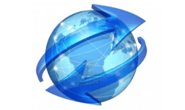
Price on Trade: Geopolitical sparks in Davos foretell intense upcoming USMCA talks
If forced to choose between Canada and Mexico, many manufacturers are likely to prioritize Mexico as the more important manufacturing hub.


If forced to choose between Canada and Mexico, many manufacturers are likely to prioritize Mexico as the more important manufacturing hub.

As we move into 2026, it’s time to look forward. While the “Donroe Doctrine,” Venezuela, and Greenland absorb significant press attention, important trade developments will also continue to make headlines this year. The unprecedented changes we saw in 2025 will continue in 2026, particularly in the areas of IEEPA and tariffs, USMCA, and the WTO.

In our opinion, it is striking that for all the bold talk about establishing a "common external tariff" — or "Fortress North America" — the solutions being proposed fail to live up to their promises. As we have commented recently, USMCA certainly needs a rethink. But we have serious concerns about Canadian and Mexican proposals that suggest common trade policies that are, as we see it, more illusory than effective.

Wiley attorneys Alan Price and Ted Brackmeyer argue that significant changes to the USMCA and continued Section 232 tariffs on Canada and Mexico are needed to support American steelmaking.

It was only a matter of time before a shutdown happened. And, no, we aren’t talking about the federal government’s lapse in appropriations. On Oct. 9, Beijing announced a series of restrictions that will effectively shut down exports of rare earth elements, magnets, and certain downstream products vital to advanced manufacturing.

Any steel imports into the EU that exceed the new, lower quota level would be subject to a 50% tariff, which represents a major increase from the EU’s current 25% out-of-quota tariff. This move would largely align the EU’s steel tariff rate with Canada and the United States.

How can the U.S. government block U.S. Steel’s Granite City rolling mill closure without harming other American steelmakers? Reducing imports should be the first step. Foreign producers continue to aggressively target the U.S. market, especially now as they find themselves displaced by Chinese exports.

International trade law and policy remain a hot topic in Washington and beyond this week. We are paying special attention to the ongoing litigation of the president’s tariff policies and the administration’s efforts to heighten trade enforcement.

As everyone surely knows by now, the SMU Steel Summit starts on Monday in Atlanta, Ga. So, this is a great opportunity to reflect on how much has changed since the 2024 Summit. Certainly, no one could have imagined the wholesale and transformative changes to U.S. and global trade policy.

The administration continues to negotiate deals with US trading partners, and the reciprocal tariff program appears poised for further modification. This week, we focus on other important developments that may have received less media attention.

As the president’s August 1 tariff deadline approaches, the “Let’s Make a Deal” game show returns to primetime (the Monty Hall version, of course). As the administration begins rolling out trade deals, we are starting to see what’s behind door number one and who is getting a “zonk.”

Trade issues do not seem poised to leave the headlines anytime soon. And as recent developments show, the administration’s tariff policy remains ever-changing.

The document makes clear that Nippon Steel, through Nippon Steel America, will have “100% ownership of [the] common stock.” So if you want to own an interest in U.S. Steel’s future success, you will need to buy shares in Nippon Steel on the Nikkei stock exchange. It certainly will not be in your domestic S&P 500 ETF.

International trade attorneys discuss court decisions this week that left many importers, manufacturers, and even casual observers wondering: What’s next?

International trade remains at the forefront of President Trump’s agenda, especially as new negotiations and investigations continue to be announced.

President Trump cast a wide net with the proposed, reciprocal tariffs. The negotiating stage will be critical to determining the success of his strategy. And for those suffering tariff whiplash, don’t expect the pace of change to slow down just because the reciprocal tariffs are entering a negotiating phase.

Should foreign investment be allowed to reshape the American steel Industry? Not to be lost in the recent on-again-off-again tariff frenzy, Nippon Steel’s proposed takeover of U.S. Steel has also found itself in President Trump’s crosshairs when it comes to trade and industrial policy. Nippon Steel initially announced its nearly $15-billion bid for U.S. Steel […]

Trump's new auto tariffs will apply to passenger vehicles (including sedans, sport utility vehicles, crossover utility vehicles, minivans, and cargo vans), light trucks, and certain automobile parts (including engines and engine parts, transmissions and powertrain parts, and electrical components).

The administration’s trade rollercoaster is moving at record speeds, running along the rails of innovation and expansion. But it can be confusing and difficult to keep up with. US manufacturers that follow these developments closely could benefit from the ride. Companies that miss new updates, or fail to accurately interpret their duty liability, could be left feeling queasy. Some rollercoasters are not for the faint of heart, and this one is a bit like Space Mountain. We are all riding without much ability to see the next turn or drop.

Do we want the benefits of the Section 232 tariffs to flow to the bottom lines of foreign steel and aluminum producers or to the US government and, ultimately, domestic manufacturers and their workers? In our view, the answer is simple. Section 232 exceptions do nothing more than lead to underserved profits for foreign manufacturers who are harming the US industrial base. That revenue could be used to pursue the Trump administration’s other policy priorities - such as deficit reduction or expanded tax cuts.

The day-to-day bustle of these announcements should not obscure what they signal for other potential tariff measures in the near term and a revamped trade and economic policy in the long term.

Day One of the second Trump administration did not bring tariffs, but it did signal that tariffs, and other major trade actions, are not far off.

This may be the most consequential six months for trade policy in recent memory. The wait to see what form Trump's actions take is almost over.

We focused on trade actions the second Trump administration might take in a prior column. Since then, we have learned more about the individuals who will be leading these efforts. Recent nominations reinforce the president-elect’s statements that tariffs will feature prominently in the second administration and that trade actions will be unveiled at lightning speed.

The OECD Steel Committee convened its 96th session last week in Paris, along with the Global Forum on Steel Excess Capacity. The event brought together 250 government and industry delegates from 40 of the largest steel-producing countries. The Committee’s discussions and presentations were clear: Steel markets worldwide are in dire straits.
After a frenzied election cycle, Donald Trump will return to the White House with an amplified trade agenda.

Earlier this month, Nippon Steel announced that it is applying for subsidies under the Japanese government’s Green Transformation Promotion Act to expand the company’s electric furnace steelmaking capabilities and to convert from blast furnace to electric furnace operations. As we have said before, transitioning from blast furnace- to electric furnace-based steelmaking is a good thing […]
The Global Forum on Steel Excess Capacity (GFSEC) reaffirmed on Oct. 8 what domestic steel producers have long known—the threat of excess steel capacity never disappeared and is evolving. China’s steelmakers are boosting capacity and exports, echoing the 2016 global steel crisis. There is no doubt that China is successfully weaponizing excess capacity across many industries, and the fatal damage to domestic production and national security undermines the interests of all market-oriented countries. The question now is: How will GFSEC countries respond?
The only way to achieve net zero goals worldwide is to significantly reduce the greenhouse gas emissions of the global steel industry. And emissions standards can play a key role in encouraging (or discouraging) steel decarbonization. In that spirit, earlier this year, the Biden administration established a climate and trade task force, aimed at a promoting “a global trading system that slashes pollution, creates a fair and level playing field, protects against carbon dumping, {and} supports good manufacturing jobs and economic opportunity.” These are ambitious and laudable goals. Across sectors, the United States has a significant carbon advantage over many of its economic competitors. This is certainly true in the steel industry, where American manufacturers are among the lowest emitting in the world. In other words, when it comes to steel, climate-focused trade policy can go hand-in-hand with US competitiveness.

The chair of China’s Baowu Steel Group recently predicted a “harsh winter” for the Chinese industry as it faces a structural economic slowdown and a property market crisis. As steel industries elsewhere know all too well, China’s “harsh winters” have an unfortunate tendency to blow back on them.